One Soufflé at a TimeA Memoir of Food and France
In One Soufflé at a Time, Willan tells her story and the story of the food-world greats—including Julia Child, James Beard, Simone Beck, Craig Claiborne, Richard Olney, and others—who changed how the world eats and who made cooking fun.
Anne Willan demystified classic French culinary technique for regular people who love food. Her legendary La Varenne Cooking School—in its original location in Paris and later in its longtime home in Burgundy—trained chefs, food writers and home cooks. Under Willan’s cheerful, no-nonsense instruction, anyone could learn to truss a chicken, make a bernaise, or loft a soufflé.
In One Soufflé at a Time, Willan tells her story and the story of the food-world greats—including Julia Child, James Beard, Simone Beck, Craig Claiborne, Richard Olney, and others—who changed how the world eats and who made cooking fun. She writes about how a sturdy English girl from Yorkshire made it not only to the stove, but to France, and how she overcame the exceptionally closed male world of French cuisine to found and run her school. Willan’s story is warm and rich, funny and fragrant with the smells of the country cooking of France. It’s also full of the creative culinary ferment of the 1970s—a decade when herbs came back to life and freshness took over, when the seeds of our modern day obsession with food and ingredients were sown.
Tens of thousands of students have learned from Willan, not just at La Varenne, but through her large, ambitious Look & Cook book series and twenty-six-part PBS program. Now One Soufflé at a Time –which features fifty of her favorite recipes, from Coquille St. Jacques to Chocolate Snowball–brings Willan’s own story of her life to the center of the banquet table.
 ANNE WILLAN is one of the world’s authorities on French cooking with more than fifty years of experience as a teacher, cookbook author and food columnist. She founded Ecole de Cuisine La Varenne in 1975. Her most recent books are The Cookbook Library: The Cooks, Writers and Recipes that Made the Modern Cookbook, with her husband, Mark Cherniavsky, which won the Jane Grigson Award for outstanding literary writing, and The Country Cooking of France, which took two James Beard Foundation Book Awards. Willan was inducted into the James Beard Foundation’s Cookbook Hall of Fame in 2013 for her body of work. She lives in Santa Monica, California and in France.
ANNE WILLAN is one of the world’s authorities on French cooking with more than fifty years of experience as a teacher, cookbook author and food columnist. She founded Ecole de Cuisine La Varenne in 1975. Her most recent books are The Cookbook Library: The Cooks, Writers and Recipes that Made the Modern Cookbook, with her husband, Mark Cherniavsky, which won the Jane Grigson Award for outstanding literary writing, and The Country Cooking of France, which took two James Beard Foundation Book Awards. Willan was inducted into the James Beard Foundation’s Cookbook Hall of Fame in 2013 for her body of work. She lives in Santa Monica, California and in France.
http://lavarenne.com/
AMY FRIEDMAN is the author of Desperado’s Wife: A Memoir. She writes the internationally syndicated “Tell Me a Story” column for Universal Press Syndicate.
Photo credit Siri Berting
Anne Willan has been a leading figure in the culinary world since she founded Ecole de Cuisine La Varenne. Her most recent book One Soufflé at a Time is a departure for her. It is a memoir. The story of her time in the culinary world. Arriving via Cambridge in Paris at the famed Cordon Bleu and its owner the now infamous Madame Brassart. Then going on to start her own cooking school, the esteemed La Varenne. Anne Willan was kind enough to talk to Booksaboutfood.com about her new book
~~~~~~~
Booksaboutfood.com (BAF): We should congratulate you. Your book was released today.
Anne Willan: Well, we just went out to a nice lunch so yes, absolutely.
BAF: You’ve written about yourself as a sturdy Yorkshire girl. I’m just curious what the definition of a sturdy Yorkshire girl is.
Anne Willan: Well, good big bones, a cheerful smile, a tackle anything outlook.
BAF: That helped to pursue your passion by going out to France, I guess, the optimism?
Anne Willan: Yes, I mean, I think I was probably born with that and it is sort of a Yorkshire characteristic. Do you know of a book writer called Jane Grigson?
Well Jane was also from Yorkshire. She and I … she was 10 years older than me. Were very good friends. She graduated from Cambridge also. She had a house in France. She had just the same sort of outlook as me. It is a Yorkshire kind of trait.
BAF: This book is a bit of a departure for you, isn’t it? There are recipes in it but it’s not strictly a cookbook. It’s more of a memoir.
Anne Willan: You’re absolutely right. I had a wonderful co-writer, Amy Friedman, who helped me. She helped me kind of talk about myself so she could put it into words. I did try at the beginning to write about myself and that’s another very English characteristic is that you were brought up not to talk about yourself or push yourself forward.
BAF: It must have been quite a different challenge from writing your usual, from writing the books that you usually do.
Anne Willan: Yes, it was very different. Of course, it has the emotional and memories that a cookbook bring in some ways evoke but not at all in the same way. I find that Amy was enormously helpful and skilled in asking me just the right questions as you’re doing and getting me to talk basically.
BAF: Oh, I see so it was sort of meant to be, I guess.
Anne Willan: So indeed, it was meant to be. We talked to two or three people before that and asked them to write the sort of sample chapters or the writing samples. Amy absolutely hit the spot on the first go.
It was a very interesting “process”. I’ve written lots of books and I’ve worked with lots of helpers on books but writing a cookbook, as you say, is a totally different thing.
BAF: How long did the process for this book take?
Anne Willan: It’s about three years ago that we started. Amy and I would meet once a week for about two hours. I mean, the work that she put into it was extraordinary because she recorded it and also took notes while we were talking then she would go back home and transcribe what we’ve talked about and then picked out parts that she felt were key. The book has a kind of verbal flow to it which is not at all my writing style and sounds rather though I’m talking on the page.
BAF: Did you have a moment when you knew that you wanted to make food your career and your livelihood?
Anne Willan: Well yes, it was but it was quite late, I mean, late on. I was in my early 20’s but right from the beginning; I was very greedy apparently. As a baby, I was very greedy and I always loved food. For a woman or a girl of my generation, who was educated at boarding school and then university, I mean, food as a career was unthinkable. I never really thought about it until I went to the Cordon Bleu as a student in London and my parents said they’d run me to it because they knew I loved cooking.
When I was there, the minute, I mean after two weeks, I knew that that was what I wanted to pursue. Now there were almost no outlets for women in cooking in those days. The Cordon Bleu luckily asked me to stay on to teach and I guess I could have tried to do a few traveling cooking classes but there were no openings for that kind of thing. Restaurants would not have considered taking a woman into the kitchen, a good restaurant which of course, was what I was interested in with sophisticated cooking. It was all men.
There were women, I mean, Rosemary Hume who founded the Cordon Bleu would have been self-taught, I think. Jane Grigson was 10 years older than me and she was undoubtedly self-taught in cooking. There were people who kind of pursued a lone road and I guess to some lesser extent, I did too because I went to France. But it was even in the 60’s, the early 60’s that was pretty unusual. I mean, my father said to me, I was an only child and all the family’s hopes were on me, you know, “After all that education, and what are you doing now? You’re a cook.”
BAF: After you had graduated from Cambridge?
Anne Willan: Yes and I graduated with a third-class degree of you know which is not much use. They said to me, “Well dear, why don’t you take a secretarial course?” I was damned if I was going to take a secretarial course.
BAF: You said it was in the 60’s? It would have been after the austerity and the rationing of the war so one can imagine that that career would have been even less attractive to people or less of that.
Anne Willan: Yes, exactly. It was 1961-62.
BAF: Rationing was over by then but still, it was fresh in people’s minds, the hardships.
Anne WIllan: It was just the beginning of the Elizabeth David revolution.
BAF: What was it that drew you to France initially?
Anne Willan: Oh because the best cooking was in France and if you wanted to learn more about good cooking, it was very clear to me, you had to go to France. So I went, I mean, I learned French at school but not to any sophisticated level. So I went for three months to Switzerland to get fluent in French because…there was no opening for a woman to learn about cooking for a non-French woman except to go in fact only to Cordon Bleu in Paris which was a very down at the heels school at the time.
Have you seen the film Julie and Julia?
BAF: I’ve read the book (My Life in France).
Anne Willan: Madame Brassart was exactly portrayed in the film. She was a real witch. She was just like that.
BAF: How Julia Child had described her?
Anne Willan: Yes, she was. I mean, Julia was, I think about 10 years, it might have been about eight years before me but Madame Brassart had not changed an iota.
BAF: I believe, she (Julia Child) was the only woman as well in her class.
Anne Willan: Yes, she was. She was very much the pioneer over here.
BAF: You continued on at the Cordon Bleu in Paris?
Anne Willan: So I continued at the Cordon Bleu in Paris to get the Grand Diplôme which I was determined to do. She (Madame Brassart) made me stay three months so I’d been teaching for two years already in London but of course, she denounced the London Cordon Bleu as, “Oh, it shouldn’t be possible. It wasn’t for real. They didn’t know what French food was.” And all of that kind of thing, she was a terrible woman, Madame Brassart.
BAF: She also wouldn’t let Julia Child graduate either. She withheld her diploma or wouldn’t let her take the test, if I remember.
Anne Willan: That would have been absolutely typical.
BAF: What chefs did you admire, the French chefs that you admired back then that drew you to France and were doing the food that intrigued you?
Anne Willan: Fernand Point’s (La Pyramide) was still on the go…
I did have a dinner at Saulieu ((La Côte-d’Or) and of course, I mean, it was still in the particular room that they’d preserved which was a small paneled dining room, just simple white cloth tables and oh, no fuss with the table setting. That is how … I don’t remember specifics though I’ve seen the room as it is now. But that’s what I remember, just very simple, absolutely delicious food. Poulet en Vessie with morrels in cream sauce on the side and what we had for dessert, I don’t know.
BAF: It was really the food in general that drew you to France, the culinary tradition that spoke to you and connected with you.
Anne Willan: Absolutely, it was still very classic Escoffier style cooking and there were still chefs who were doing it superbly. Whereas, of course, by the time I opened La Varenne in the 70’s, Escoffier’s style of cooking had gotten very tired and it was just the beginnings of nouvelle cuisine.
BAF: That was a very interesting time to open up a cooking school.
Anne Willan: It was a very interesting time and all the chefs were trained in Escoffier who were teaching, I mean, at the school were trained in Escoffier style of cooking and they were flipping it in their own style, kind of reducing flour and the sauces or removing it and changing presentations, not masking things in sauce but putting the sauce on the plate and the main ingredient on the top which was sort of, at the beginning, anathema to me.
BAF: It sounds like you fell into teaching cooking?
Anne Willan: Yes, I did. Again, with the Cordon Bleu, they asked me to stay on to teach and I’ve been enjoying those three months of the Cordon Bleu in London. Once I was doing it, I discovered that that’s what I liked doing which is kind of telling people the right way to do it, what I feel is the right way to do it.
BAF: Fortunately, your time in Paris at the Cordon Bleu didn’t turn you off from that.
Anne WIllan: No, it didn’t at all because I put an ad in the Herald Tribune and found out that for what I really enjoyed doing, which was teaching. So I found other places to be able to teach and at the Cordon Bleu, I just sort of listened to what we only were taught by one chef and I mean that’s just great. But 18 months of hearing what one chef has to say or any teacher is limited.
So when we opened La Varenne, that was one of the things I was determined to do was bring in lots of different teachers so that students were exposed to all kinds of different opinions and styles and ways of doing things.
BAF: You still occasionally teach. Do you still enjoy doing that?
Anne WIllan: Yes, I do very much. We’re having a class in a couple of weeks actually.
Now, I ask chefs to come in and teach in my kitchen and I kind of host and then we have a consultation but we do lots of cooking. I also still take on a trainee or two here or there so that the people come and help with what I’m doing like launching the promo for this book. So they learn by implication and we test recipes and I always seem to have some kind of a project on the go.
BAF: Why have the French have developed this unique passion and love affair and appreciation of food?
Anne Willan: Well, I think one thing is that France until very recently was unique in the variety and quality of the ingredients and I mean, three different oceans so three different kinds of fish and several sets of mountains so different sausages and hams and different climates so different cheeses and different fruits and vegetables. I mean, nowhere in Europe is there anything comparable from that point of view. I think that personally helped.
The French are very good at, I hate to call them minor but on fashion design, style … I mean the French are awfully good at good living, aren’t they?
BAF: When you arrived in France, did you feel you had arrived home, so to speak?
Anne Willan: Yes, I did totally and I felt that I was accepted as a woman, as an independent woman pursuing her career in a way that in England, I didn’t find. Now, it’s probably that I myself was developing and it just caught me at that stage of development. But I definitely felt that.
BAF: What are you working on now? What’s in the works?
Anne Willan: Well, there’s the eBook. I’m just finishing out on a serious exploration of edible monuments in the late 17thcentury.. it’s for an exhibit at the Getty probably I think in 2015. They asked me to do the food aspect of it and I said, “Look, I don’t know anything about edible monuments.” That being, I then explored and discovered when I’d finally been persuaded into doing it. Sugar sculptures, edible sculptures in the Baroque period at the end of the 17th century, all rather restricted. I don’t want to you know … and someone else is doing all of the … oh the political side and who was there and why, the background of the occasions. So I’m just on the sidelines, as it were, trying to answer what did they actually eat and what way did they eat it? I mean, who served it and what did the tables look like and what were the serving utensils and that kind of thing. It’s always in the kitchen.
~~~~~~~
Booksaboutfood.com © 2013


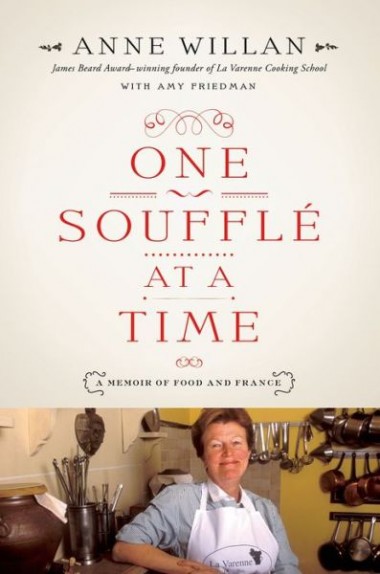


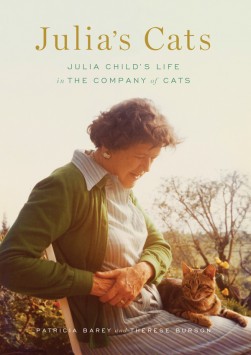
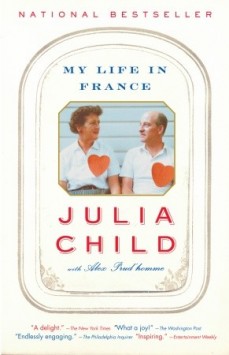
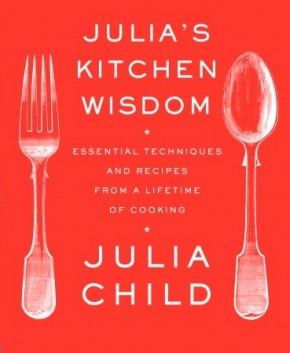
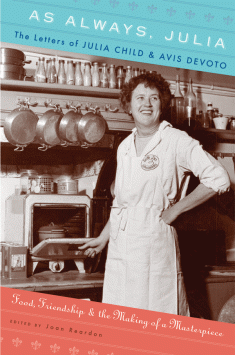
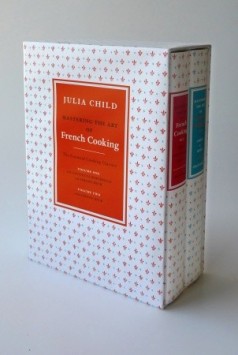
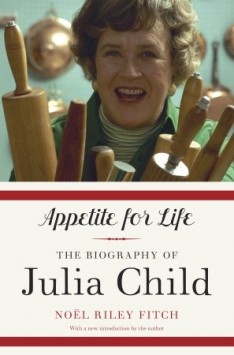
Leave a Reply